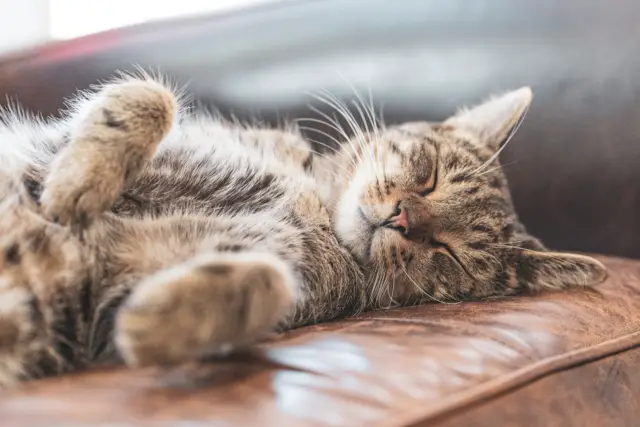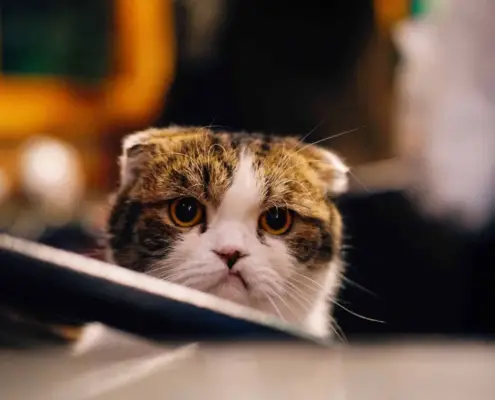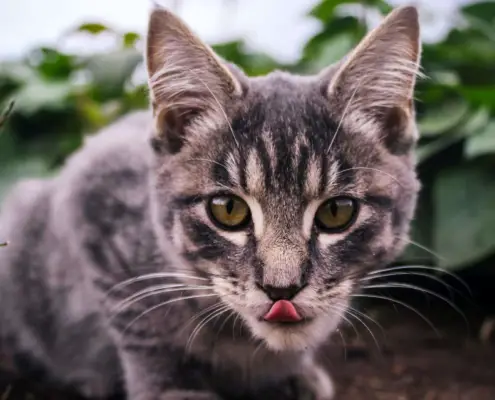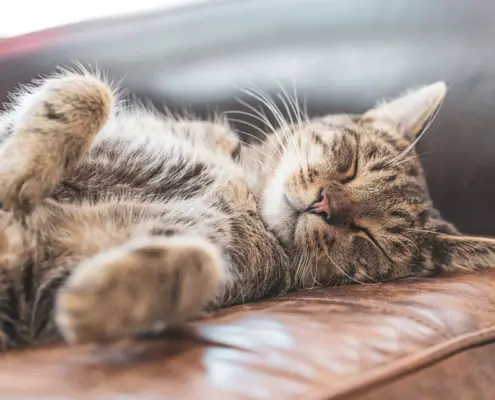
Cats are known for their independent and mysterious nature, and one aspect that perfectly embodies these qualities is their sleep patterns. If you have ever wondered how long cats sleep for and why they seem to snooze most of the day away, you’re not alone. Understanding the sleep habits of our feline companions can provide valuable insights into their overall health and well-being.
Understanding the sleep needs of cats
Cats are crepuscular animals, which means they are most active during dawn and dusk. However, they still require a significant amount of sleep to maintain their energy levels. On average, cats sleep for around 12 to 16 hours a day, but this can vary depending on various factors such as age, health, and lifestyle. Kittens and senior cats tend to sleep even more than adult cats, while outdoor cats may have shorter sleep durations due to increased stimulation and activity.
Factors that influence cat sleep duration
Several factors can influence how long cats sleep for. One of the primary factors is age. Kittens, for example, require more sleep as they are rapidly growing and developing. On the other hand, older cats may sleep more due to a decrease in energy levels. Additionally, a cat’s health can also impact their sleep patterns. Cats with underlying medical conditions or those recovering from illness or surgery may require more sleep to aid in their healing process. Lastly, the environment plays a significant role in a cat’s sleep duration. A safe and comfortable living space can contribute to better quality sleep for your feline friend.
Cat sleep behavior and patterns
Cats have unique sleep behavior and patterns that differ from other animals. They experience both rapid eye movement (REM) sleep and non-rapid eye movement (NREM) sleep, just like humans. However, cats spend a larger portion of their sleep time in light sleep stages, which allows them to be more alert and responsive to their surroundings. This is why cats can easily wake up from their naps at the slightest noise or movement. Their sleep cycles are generally shorter than humans, with an average of 20 minutes per cycle. Understanding these sleep behaviors can help cat owners interpret their cat’s needs and behaviors.
Common misconceptions about cat sleep
There are several misconceptions surrounding cat sleep that are important to address. One common misconception is that cats are lazy or unproductive because they sleep for long periods. In reality, cats are highly efficient hunters and need to conserve energy for their bursts of activity. Another misconception is that cats are nocturnal animals. While they are more active during dawn and dusk, they are not strictly nocturnal. Cats can adjust their sleep patterns to fit their environment and the lifestyle of their human companions.
Health implications of inadequate sleep in cats
Just like humans, inadequate sleep can have detrimental effects on a cat’s health. Sleep deprivation can lead to a weakened immune system, obesity, and behavioral issues. Cats may become irritable, lethargic, or exhibit excessive grooming or vocalization if they are not getting enough quality sleep. It is essential for cat owners to provide a conducive sleep environment and ensure their feline friends are getting the rest they need to stay healthy and happy.
Tips for creating a conducive sleep environment for cats
Creating a conducive sleep environment for your cat is crucial for their well-being. Here are some tips to help you provide the perfect sleep environment for your feline companion:
- Provide a comfortable and cozy bed or sleeping area for your cat. Cats love soft surfaces and may prefer a warm blanket or a bed with plush cushions.
- Ensure that the sleeping area is located in a quiet and peaceful part of your home. Avoid placing it near noisy appliances or high-traffic areas.
- Keep the sleeping area clean and free from any potential disturbances. Regularly wash bedding and remove any clutter or objects that may disrupt your cat’s sleep.
- Create a routine that includes playtime and exercise to help your cat burn off energy before bedtime. Engaging in interactive play sessions can help tire them out and promote better sleep.
- Consider using pheromone diffusers or calming sprays to create a soothing atmosphere in your home. These products mimic natural feline pheromones and can help reduce stress and anxiety, promoting better sleep.
By following these tips, you can ensure that your cat has a peaceful and restful sleep, contributing to their overall health and happiness.
Sleep disorders in cats and how to address them
While cats are generally good sleepers, they can also experience sleep disorders. Some common sleep disorders in cats include insomnia, sleep apnea, and restless leg syndrome. If you suspect that your cat is suffering from a sleep disorder, it is important to consult with a veterinarian. They can conduct a thorough examination and provide appropriate treatment options to address the underlying cause of the sleep disorder.
Fun facts about cat sleep
Here are some fascinating and fun facts about cat sleep that you may not know:
- Cats can dream just like humans. During REM sleep, their whiskers and paws may twitch, suggesting that they are dreaming.
- Cats can fall asleep quickly. They can go from fully awake to asleep within a matter of seconds.
- Cats are masters of power napping. They can quickly recharge by taking short naps throughout the day.
- Cats are capable of sleeping in unusual positions and places. From contorted poses to sleeping in boxes or tight spaces, cats can find comfort in the most unexpected positions.
- Cats are light sleepers. They have highly sensitive senses and can easily wake up if they sense any potential danger or disturbance.
Appreciating the royal sleep habits of our feline companions
In conclusion, cats have unique sleep patterns and behaviors that are influenced by various factors such as age, health, and environment. Understanding how long cats sleep for and providing them with a conducive sleep environment is essential for their overall health and well-being. By appreciating and respecting their sleep habits, we can ensure that our feline companions live a happy and fulfilling life. So, the next time you see your cat curled up in a cozy spot, take a moment to appreciate the royal sleep habits of your feline royalty.
If you enjoyed my article, I would appreciate you sharing it with your network.

Sima Ndlebe
Sima writes for CatBuzz. He is interested in Cats, Health and Fitness, and Entrepreneurship.
Published: 13 October 2023
Related Articles
Disclaimer
The content found on CatBuzz.org is presented on an "as is" basis and is intended for general consumer information and education purposes only. Any utilization of this information is voluntary and solely at the user's own risk.
None of the articles or content should be regarded as, or used in place of, veterinary medical advice, diagnosis, or treatment. The information provided on the website is purely for educational and informational intentions and should not be considered a substitute for professional guidance from a veterinarian or other qualified expert. The articles are designed to inform consumers about veterinary healthcare and medical matters that may impact their cat's daily life. It should be noted that this website and its services do not constitute the practice of any form of veterinary medical advice, diagnosis, or treatment. CatBuzz.org explicitly disclaims any liability for any direct or indirect damages or losses that may arise from the use of or reliance on the information contained within the content.
Consumers must consult a veterinarian, veterinary specialist, or another qualified veterinary healthcare provider when seeking advice regarding their cat's health or medical conditions. It is important not to ignore, avoid, or postpone seeking medical advice from a veterinarian or other qualified veterinary healthcare provider solely based on information obtained from this website. If you believe that your cat may be experiencing a medical issue or condition, it is imperative to promptly contact a qualified veterinary healthcare professional.



